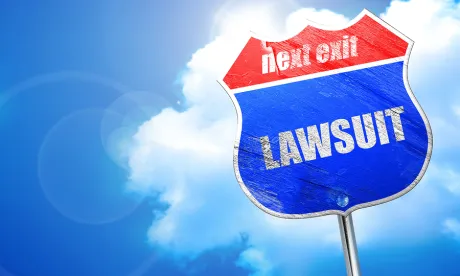Do jurors’ perceptions of attorneys and their performance in a courtroom affect verdict outcomes? Yes, according to four scholars who set out to answer that question in their study, “The Influence of Jurors’ Perceptions of Attorneys and Their Performance on Verdict,” published Jan. 2011.
Researchers Steve M. Wood, Lorie L. Sicafuse, Monica K. Miller and Julianna C. Chomos had 572 jurors fill out surveys on seven aspects of attorneys’ performance who had just tried cases in front of them. The authors gauged jurors’ observations on seven areas, including courtroom demeanor, sincerity, competence, preparedness, performance in opening and closing arguments, and evidence presentation. Generally, the study verified that juror perceptions were indeed related to verdicts, although some were related in surprising ways.
Past studies indicate that while prosecutors have a fair idea of how they are doing, defense attorneys have a skewed impression of how well they are performing (Linz, Penrod, and McDonald [1986]), believing they are doing better than they actually are. Linz et al. theorized that prosecutors have better access to feedback.
If attorneys have slanted perceptions of themselves, they will not be able to learn and correct behaviors that may negatively affect jury perceptions, which more than likely will mean a negative outcome on their cases.
While there have been many studies of juries, lawyers, and case outcomes, they have tended to be limited. The studies also focused too heavily on aspects that lawyers could not control. With this study, behaviors that lawyers could control by changing behaviors and thus impact verdict outcomes were investigated.
The researchers looked at prosecutor/plaintiff lawyers and defense lawyers separately.
Prosecutor/plaintiff
The study found opening statements of prosecutor/plaintiff attorneys did not significantly predict verdict outcomes. This is a departure from earlier studies. The general wisdom and past studies dictated that a well-organized presentation positively impressed jurors and carried through to the end of the trial. (Weld & Danzig, 1940; Pyszczynski & Wrightsman, 1981). The authors theorized jurors were more likely to consider the evidence making initial judgments.
Evidence presentation did play a significant role in verdict conclusions. Jurors appreciated the quality of presentations and subsequently were more likely to reward prosecutors/plaintiff lawyers with positive verdicts. The authors point out that if jurors perceived the evidence presented to be of high quality, then they also perceived the evidence itself to be more credible.
The degree of perceived preparedness also played a significant role in increasing a positive finding of the prosecutor/plaintiff lawyers’ cases. The authors did offer a caveat in that prosecutor/plaintiff lawyers were more likely to pursue cases that they would likely win.
Surprisingly, the impact of closing arguments stood in contrast to opening statements in that closings significantly affected verdicts. If the lawyer presented well in closings, then juries looked more favorably on the prosecutor/plaintiff lawyers’ cases. This may also be caused by the recency effect, where the last events presented are remembered best and have more impact than those that were presented earlier.
While demeanor did not meaningfully impress jurors, sincerity was an important aspect of whether a jury would find for the defense or prosecution. Not in the way that you would expect, however. The less sincere the prosecutor/plaintiff lawyer appeared, the more likely that the jury would find for the prosecutor/plaintiff lawyer.
Hahn and Clayton’s (1996) research may explain this odd finding. These researchers found that jurors had a higher propensity to acquit defendants who were advocated by aggressive lawyers. The feeling was that aggressive lawyers were more competent. Here, sincerity was viewed as passive and subsequently did not translate into competence.
Defense
The study found that there were differences in how jurors viewed defense and prosecutor/plaintiff attorneys. For instance, with defense attorneys, opening statements were a significant predictor of verdict outcome. Here, though, awaits a surprise. The better the opening statements, the less likely that the jury would find for the defense.
The authors write that legal experts view opening statements of the defense as helpful for the prosecution and therefore should be eliminated. They also suggest that prosecutors arrive at trial better prepared with case-related information and that it would behoove defense lawyers to focus on countering the prosecution’s arguments rather than postulating an alternative series of events of the crime, especially if those alternatives were extreme.
Wood et al also suggested that defense attorneys might undercut their trial strategies if they appear to be strongly attempting to change jury members’ minds. Overpromising in opening statements also might be a contributing factor, as well.
As far as evidence presentation and preparedness, the results were not surprising. The more unfavorably the jurors viewed the presentation and level of preparedness, the more it became likely that the verdict would not find for the defendant.
Perceived sincerity and demeanor did not significantly affect predict verdicts. This finding is inconsistent with what Hahn and Clayton’s (1996) found. The authors attributed this inconsistency with the methodology.
Conclusion
The conclusion of this study suggests that perceptions of attorneys do affect verdict outcomes. These are things that the attorney can and should control. Still, facts and evidence are the strongest predictors of trial verdicts.




 />i
/>i

